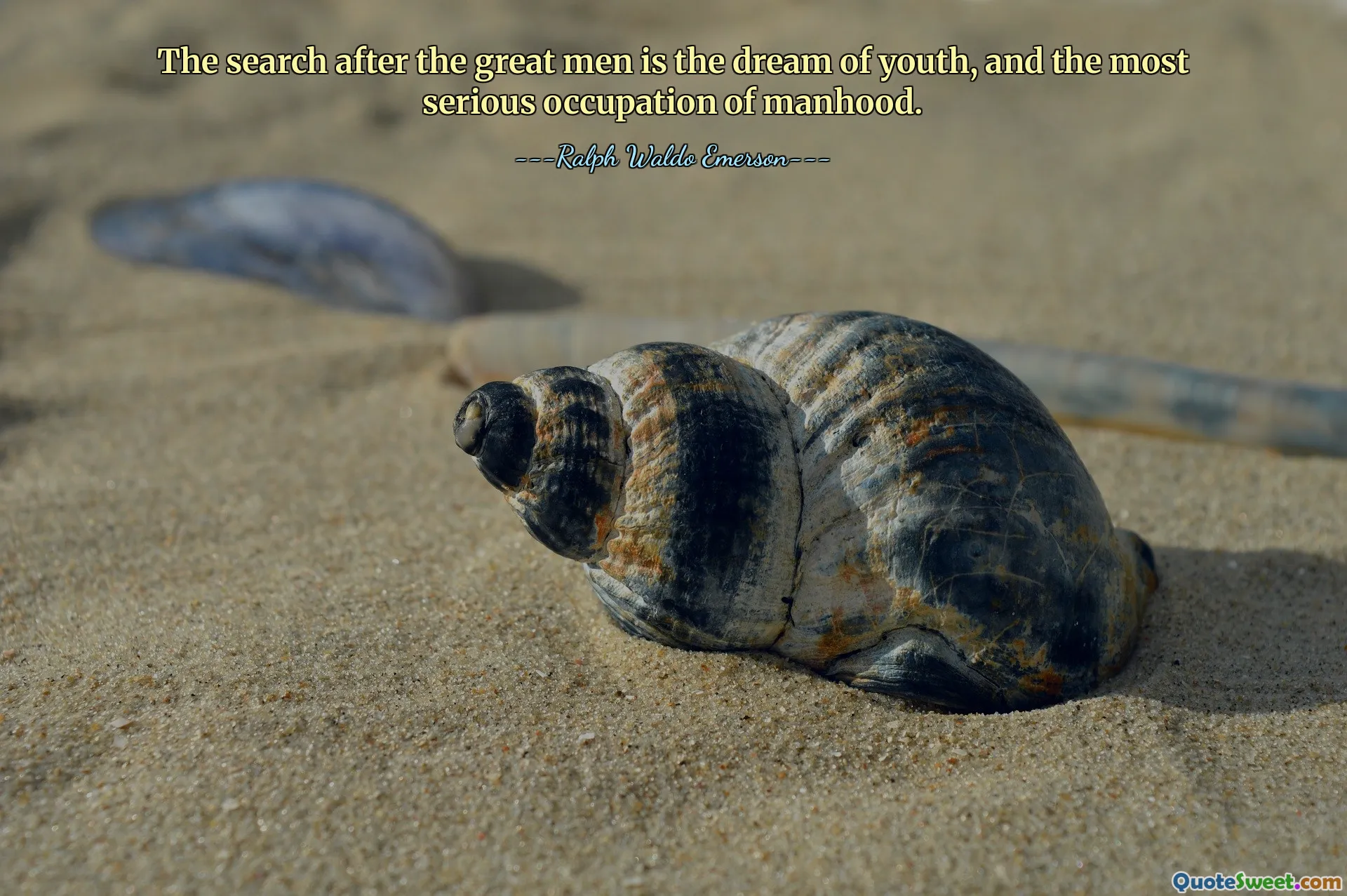
The search after the great men is the dream of youth, and the most serious occupation of manhood.
This quote encapsulates a profound observation about human development and societal values. In our youth, aspiring to find exceptional individuals—great men—is often a pursuit driven by admiration, curiosity, and the desire for inspiration. During these formative years, young minds look up to leaders, innovators, and remarkable figures as embodiments of greatness, providing aspirations and models to emulate. As we transition into maturity, however, this pursuit tends to shift from eager admiration to a more serious endeavor—an exploration of what truly makes a person great and how one might embody such qualities.
The quote suggests that, while youthful admiration can be somewhat idealized or superficial, the mature focus moves toward a deeper understanding. In adulthood, the quest for greatness becomes a consciousness of personal responsibility; it involves reflecting on one's values, influence, and the pursuit of meaningful contributions. This evolution signifies a move from admiration for external figures to internal development, recognizing that greatness is not solely in others but within oneself and in one’s actions.
Furthermore, the quote highlights that the pursuit of greatness—whether in individuals or oneself—is a significant part of human life. It underscores the importance of ambition, self-improvement, and the societal reverence for those who elevate humanity through their deeds. Ultimately, Emerson points out that this quest is crucial for personal growth and societal progress, reminding us that our aspirations evolve but remain central to our development as human beings.










